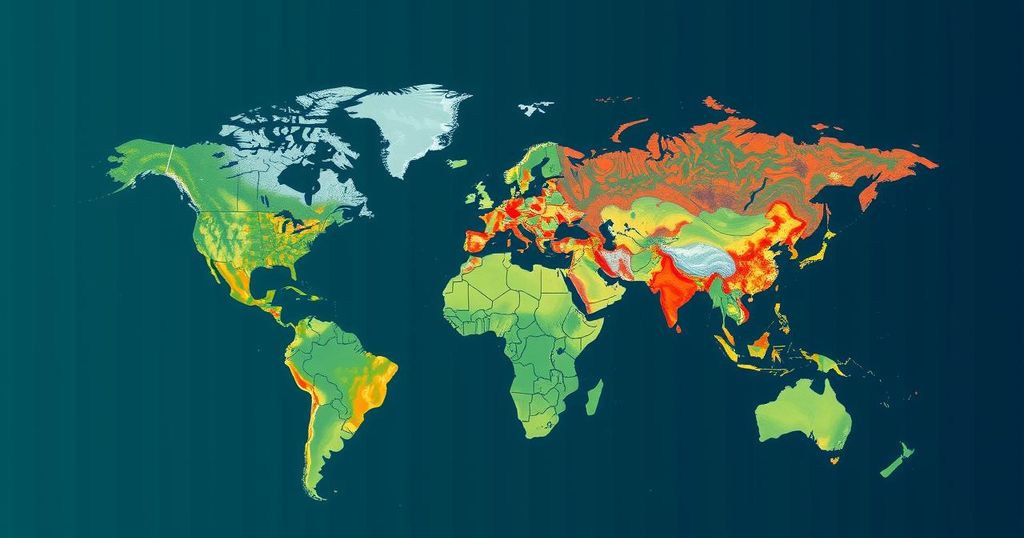Climate change increasingly challenges public health through the spread of infectious diseases and complicates vaccine distribution. Extreme weather events threaten vaccine stability and effectiveness while escalating vaccine hesitancy fueled by misinformation. Experts emphasize the need for greater public trust in vaccines and improved governmental transparency to combat misinformation and protect public health.
Climate change is reshaping the global landscape of infectious diseases, enabling pathogens to thrive in previously unaffected regions and complicating vaccination efforts. Research indicates that extreme weather and rising temperatures disrupt vaccine storage and distribution, exacerbating the challenges posed by vaccine hesitancy, particularly in the wake of the COVID-19 pandemic. The WHO has documented a surge in preventable diseases tied to climate-induced conditions, notably cholera and dengue fever, which strain healthcare systems, particularly in low-income nations.
Vaccines have substantially contributed to increased public health, saving more than 154 million lives over the last fifty years. However, climate change endangers vaccine supplies through exposure to extreme heat and damaging weather events, which can reduce vaccine efficacy and complicate immunization efforts. It is particularly concerning given the documented rise in misinformation regarding vaccines during and after the pandemic, diminishing public trust in health interventions.
Additionally, experts warn about the concurrent rise of anti-vaccine sentiments, compounded by political rhetoric that undermines vaccination efforts. The conditions conducive to disease spread also pose risks to individuals’ responses to vaccinations, as extremes of temperature may lead to increased incidences of adverse effects. This situation emphasizes the necessity for improved communication and public trust in vaccines to ensure robust public health responses. On a broader scale, policymakers must emphasize transparency and education to effectively combat vaccine misinformation in a climate-altered world.
In summary, the dual challenges of climate change and vaccine hesitancy threaten the progress made in public health through vaccination initiatives. The intersection of these factors necessitates urgent action from government officials, healthcare leaders, and public health advocates to enhance the resilience of vaccine programs and consolidate public trust against misinformation.
The implications of climate change on global health extend beyond direct environmental effects, fundamentally altering disease patterns and complicating vaccination logistics. The rise in temperature and shifting weather conditions create environments favorable for the proliferation of pathogenic organisms, leading to increased disease outbreaks. Vaccines, which have historically been a cornerstone of public health, face unprecedented risks due to climate-induced disruptions in storage and distribution chains, alongside a simultaneous increase in misinformation about their safety and efficacy. Significant research has illustrated how climate change aggravates various infectious diseases, particularly cholera and dengue. Communities in low-income countries experience heightened vulnerability due to inadequate healthcare infrastructure that is ill-equipped to respond to climate impacts. As global warming continues, the efficacy of the vaccines themselves comes under threat from environmental conditions that can compromise their integrity and effectiveness, necessitating immediate attention from public health authorities.
The convergence of climate change and vaccine hesitancy poses a significant threat to public health, potentially resulting in preventable disease outbreaks. As the effects of climate change intensify, it is imperative for global leaders to enhance the resilience of immunization programs against environmental challenges. Furthermore, combating misinformation through greater transparency and community education on vaccine safety is essential to foster trust and ensure successful public health campaigns. Only by addressing these intertwined issues can society safeguard its health against the dual menace of climate change and declining vaccination acceptance.
Original Source: www.nationalobserver.com






